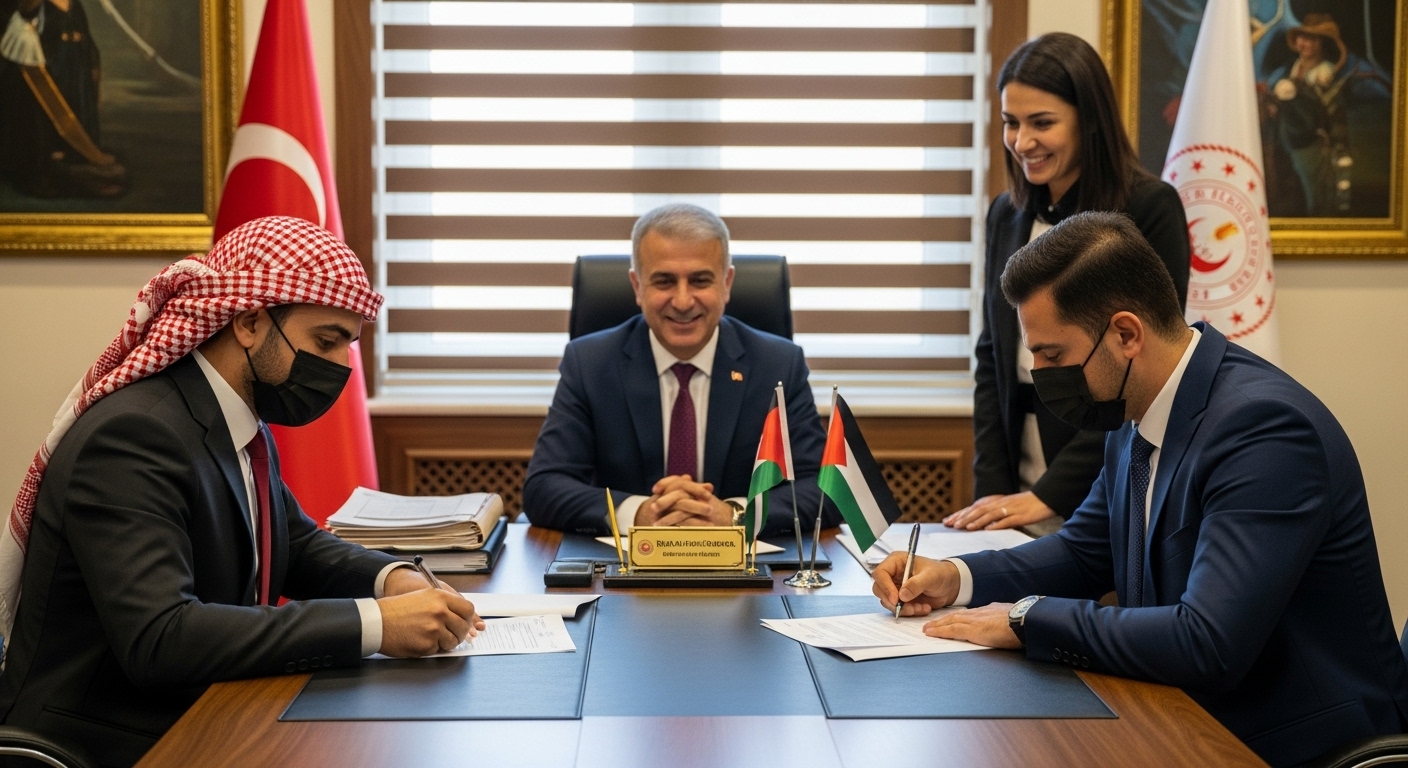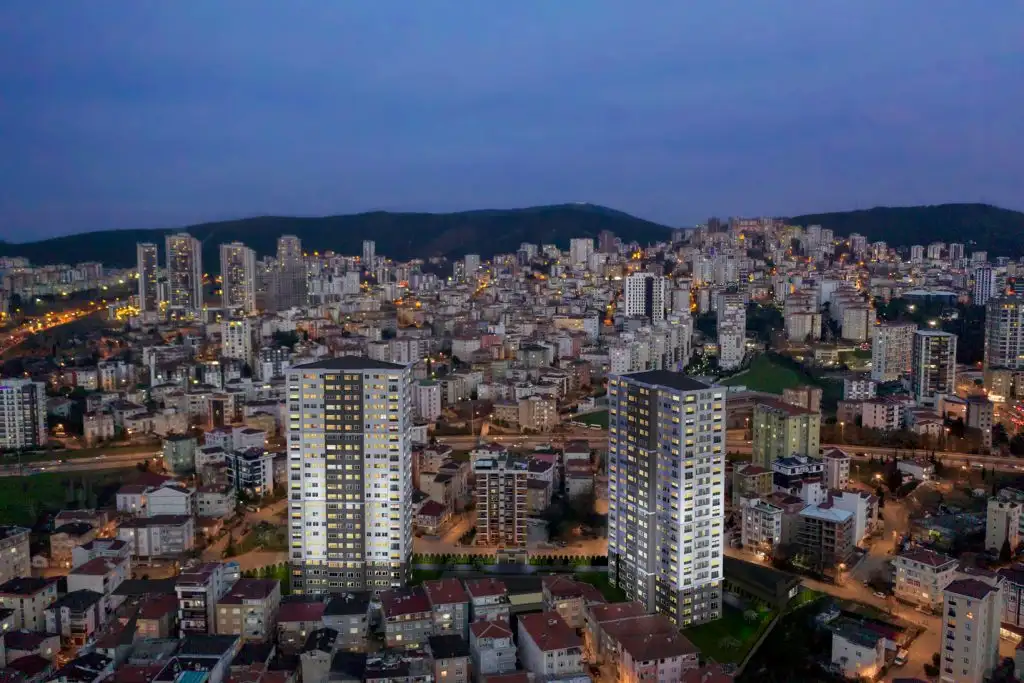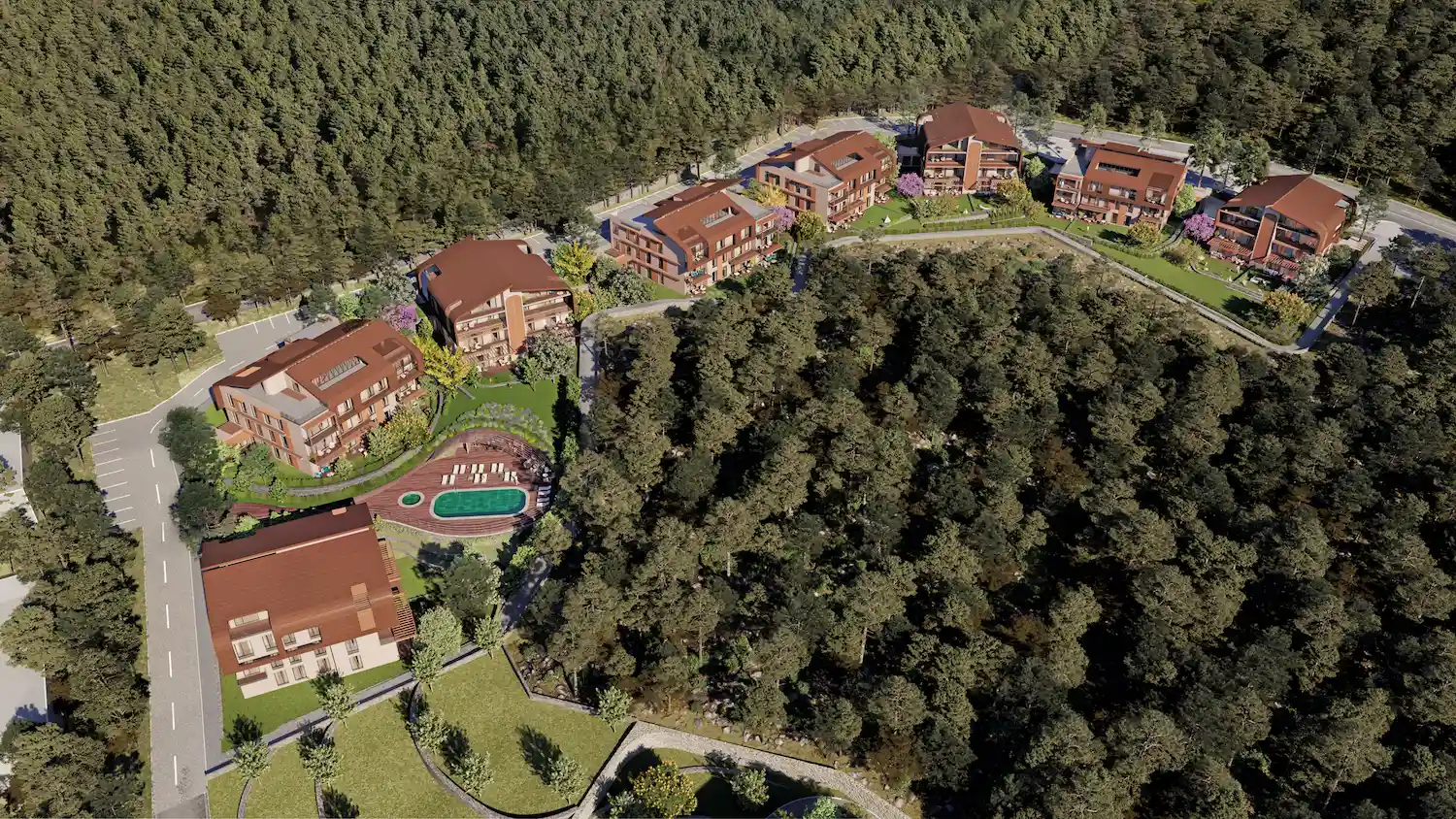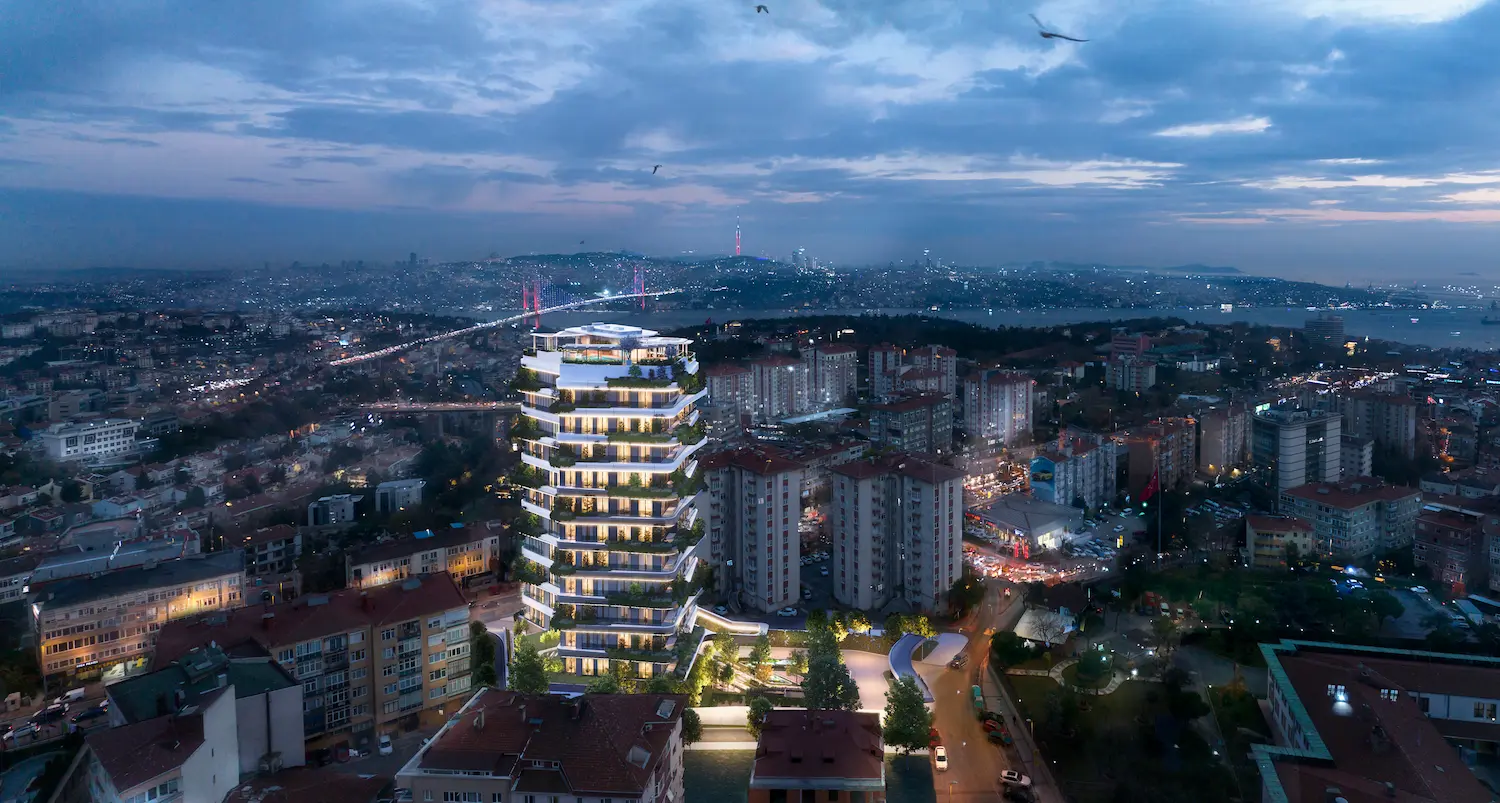How Palestinians Can Obtain Turkish Citizenship in 2025
Discover the complete guide for Palestinians on how to get Turkish citizenship in 2025 through investment, marriage, or bank deposit with all requirements and costs explained.

Thinking about calling Turkey your new home as a Palestinian? You're not alone. Thousands of Palestinians are exploring the opportunity to become Turkish citizens. With its growing economy, strategic location, and political openness, Turkey offers a unique destination for many who seek stability, investment, and global mobility. But how can Palestinians secure this coveted red passport? This guide walks you through everything—from real estate investment to marriage routes and bank deposits—tailored for Palestinian nationals.
The road might seem a bit complex, but with the right info, it becomes more of a roadmap than a maze. Whether you're interested in starting a business, buying property, or just want a better future for your family, this article gives you the tools to make it happen in 2025.
Understanding Turkish Citizenship for Palestinians
Overview of Turkey’s Citizenship Laws
Turkey offers several legal pathways to citizenship. These include naturalization after long-term residence, marriage to a Turkish citizen, exceptional citizenship (granted by presidential decree), and most popularly, through investment. In recent years, the Turkish government made headlines by lowering the investment threshold for citizenship, making it more accessible to foreign investors—including Palestinians.
Turkish citizenship grants a wide array of rights: voting, access to public healthcare, free education, and a strong passport that offers visa-free or visa-on-arrival access to over 110 countries. That’s why many foreigners, especially those from politically unstable regions, see Turkish citizenship as a valuable asset. To learn more about the power of the Turkish passport, check out this detailed guide on the Power of Turkish Passport.
Special Considerations for Palestinians
Palestinians often face unique challenges due to travel restrictions and statelessness. Turkey recognizes these challenges and has streamlined some of its procedures, making it easier for Palestinians to apply under the investment or marriage-based citizenship options.
There’s no legal restriction preventing Palestinians from owning property or applying for citizenship—contrary to what some rumors suggest. However, applicants must prove their legal identity and provide valid travel documents, even if they hold a temporary passport issued by another state.
General Requirements for Turkish Citizenship in 2025
Key Eligibility Criteria for Palestinians
To qualify for Turkish citizenship, Palestinians must meet certain basic criteria:
Be over the age of 18.
Have no criminal record.
Possess a valid passport or travel document.
Show the means to support themselves and their dependents.
Demonstrate legal entry and residence in Turkey.
If applying via investment, the requirements shift slightly—like meeting minimum investment thresholds or holding the investment for a certain period (usually 3 years). However, standard paths such as marriage or long-term residence have their own benchmarks.
Legal Updates and Changes in 2025
In 2025, the Turkish government has made minor adjustments to documentation requirements and timelines. Some of these include more strict background checks and the need to translate and notarize foreign documents under international conventions. For Palestinians, this means taking extra care when preparing paperwork, particularly with respect to birth certificates, residency papers, and passports.
There’s also a renewed emphasis on anti-money laundering compliance. Investors must now provide detailed proof of the source of their funds, and the banking process has tightened accordingly. For a full walkthrough of the naturalization stages in Turkey, visit this comprehensive post on the Stages of Naturalization in Türkiye.
Turkish Citizenship by Real Estate Investment
Minimum Property Value for Palestinians
Turkey’s property-based citizenship program remains one of the most attractive options. As of 2025, the minimum property investment required is $400,000. This applies equally to Palestinians and other foreign nationals. The property must be appraised by a government-licensed evaluator, and its value confirmed through official channels.
Palestinians must ensure that the property is not under any legal restrictions or debts. Plus, they’re required to hold the property for a minimum of three years—meaning you can’t flip it for a quick profit if you want to keep your citizenship.
Legal Steps and Application Process
The process goes something like this:
Select the Property: Must be residential or commercial and meet valuation criteria.
Get an Appraisal Report: Issued by a government-approved real estate appraiser.
Complete the Sale: All funds must come from overseas and be transferred through a Turkish bank.
Apply for a Certificate of Conformity: This confirms the investment meets citizenship requirements.
Submit Citizenship Application: Along with your title deed, appraisal report, and bank receipts.
It usually takes 3-6 months from purchase to receiving your Turkish passport—if everything goes smoothly. For a complete guide on the process, see this helpful resource on How to Get Turkish Citizenship – Complete Guide 2025.
Real Estate Investment and Citizenship Benefits
Why Palestinians Prefer the Property Route
Palestinians often choose real estate investment because it offers dual benefits—economic and legal. First, you secure a physical asset in a growing market. Second, you fast-track your way to citizenship without the lengthy waiting times of other methods.
Unlike long-term residency or marriage, the real estate route offers more predictability. Once your property is approved and you submit all documents, your citizenship is almost guaranteed—pending security and legal checks.
Types of Properties Accepted
You can buy:
Apartments
Villas
Commercial spaces (shops, offices)
Land (with construction permits)
However, purely agricultural land without a building permit isn’t eligible. Properties must also be free of legal encumbrances and listed on the Land Registry.
Cost of Turkish Citizenship for Palestinian Applicants
Investment Thresholds
For real estate investment, the cost starts at $400,000. For bank deposit routes, it’s $500,000. These investments must be maintained for three years to keep your citizenship.
Government Fees and Legal Costs
Additional expenses include:
Title deed fees: Around 4% of property value
Lawyer fees: $1,000–$3,000 depending on complexity
Translation and notary costs: $500–$1,000
Application and processing fees: $500–$1,000
In total, expect to spend around $410,000 to $420,000 for the entire process, including all legal and admin costs.
Citizenship Through Bank Deposit
Bank Deposit Requirements for Palestinians
One of the most overlooked yet powerful ways for Palestinians to obtain Turkish citizenship is through a bank deposit. Under this route, an applicant must deposit a minimum of $500,000 USD in a Turkish bank. The funds must stay locked in for at least three years. This method is especially appealing for those who prefer liquid investments over real estate or wish to avoid the complexities of property ownership.
The bank deposit must be made in US dollars, Euros, or Turkish Lira, and should be held in a Turkish bank under a fixed-term account. You’ll also need to obtain a certificate of conformity from the Banking Regulation and Supervision Agency (BDDK), which verifies the deposit meets the citizenship conditions.
What’s important here is that the money should come from legal sources, and you'll be required to prove the origin of the funds to comply with Turkey’s strict anti-money laundering regulations. Once the deposit is confirmed and the certificate is issued, the applicant can move forward with their citizenship application without needing to live in Turkey.
For a step-by-step breakdown of this process, visit Turkish Citizenship Through $500,000 Bank Deposit – Complete Guide 2025.
Financial Proof and Process Details
To qualify, you must:
Open an account at a licensed Turkish bank.
Deposit $500,000 or more and commit to not withdrawing it for 3 years.
Obtain a formal bank letter confirming the deposit.
Get your certificate of conformity from BDDK.
File your citizenship application.
No interest is required, and you can still earn interest or invest the funds in government bonds as long as the total capital stays untouched.
Turkish Citizenship Through Marriage
Legal Marriage to a Turkish Citizen
Another common path to Turkish citizenship for Palestinians is marriage to a Turkish citizen. However, this isn't an instant gateway. Turkish law requires couples to remain legally married for at least three years before the foreign spouse can apply for citizenship. During this period, the marriage must be genuine, and the couple should live together.
Authorities conduct interviews and even home visits to verify the authenticity of the relationship. Falsified or arranged marriages for the sake of citizenship are heavily penalized and can lead to bans from future applications.
This method is more personal and slower compared to investment routes, but it's financially easier. It doesn’t require any monetary investment—only emotional commitment and time.
Required Duration and Conditions
Here’s what you need to qualify:
A legally registered marriage to a Turkish national.
Proof of cohabitation and a shared life.
A clean criminal background.
No threat to public order or national security.
Applicants also undergo interviews to assess the sincerity of the marriage. If the authorities suspect fraud, the application is rejected immediately. After three years, if everything checks out, the Palestinian spouse becomes eligible for full Turkish citizenship.
Timeline to Obtain Turkish Citizenship
Step-by-Step Process Timeline
The duration of the Turkish citizenship process varies depending on the method used. For investment or bank deposit routes, the timeline can be as short as 3 to 6 months, assuming no complications arise.
Here’s a typical timeline for investment-based applications:
Week 1–4: Choose property or open bank account.
Week 5–6: Finalize legal documents and contracts.
Week 7: Apply for a certificate of conformity.
Week 8–10: Submit full application for citizenship.
Month 3–6: Background checks and review by Ministry of Interior.
Month 6: Receive citizenship approval and Turkish passport.
Fast-Track Options for Investors
For high-value investors or those who have political or economic contributions to Turkey, fast-track options are sometimes granted. These can cut down the process to 60–90 days under a Presidential Decree.
Marriage and naturalization processes usually take longer, anywhere from 12 to 36 months, depending on legal status, paperwork accuracy, and workload at Turkish immigration offices.
Required Documents for Palestinians
Standard Documentation List
To start your Turkish citizenship application, you’ll need the following documents:
Valid passport (original and translated)
4 biometric photos
Birth certificate (notarized and translated)
Proof of residence in Turkey (or lease/rental agreement)
Criminal background check from your home country
Marital status certificate
Bank or property documents (for investment route)
Tax ID number in Turkey
Health insurance
Special Cases and Additional Papers
Palestinians may need to submit extra documentation if:
They hold refugee status in another country
Their passport is issued by a temporary or third-party state
They’ve previously applied and been rejected
All foreign documents must be translated to Turkish and notarized, and in some cases, legalized via Apostille or approved by the Turkish consulate. It’s recommended to consult a legal expert to ensure you have everything in order to avoid delays.
Benefits of Turkish Citizenship for Palestinians
Visa-Free Travel and Residency
One of the biggest perks of becoming a Turkish citizen is the passport power. Turkish citizens enjoy visa-free or visa-on-arrival access to over 110 countries, including Japan, South Korea, most of Latin America, Southeast Asia, and parts of Africa.
This is a game-changer for Palestinians, many of whom hold travel-restricted passports. It allows greater mobility for work, tourism, or even further relocation.
Economic and Social Opportunities
With citizenship, Palestinians gain:
Full property ownership rights
Access to free education and public healthcare
Right to work in any industry without restrictions
Social security benefits
Eligibility for government jobs and tenders
Moreover, Turkish citizenship opens doors to the E2 visa in the United States, allowing business investment and residency options for entrepreneurs.
Challenges Facing Palestinians in the Process
Bureaucratic Hurdles
Despite Turkey’s openness to foreign investors and spouses, Palestinians still face some bureaucratic challenges during the citizenship process. One of the biggest obstacles is the lack of standard travel documents. Many Palestinians, especially those from Gaza or holding refugee status in other countries, use temporary or stateless passports, which complicates verification.
Furthermore, getting foreign documents authenticated, translated, and accepted in Turkey can be time-consuming and expensive. Applicants often encounter delays due to document inconsistencies, outdated records, or names written in multiple formats (especially with Arabic-English transliterations).
Another common challenge is the limited digitalization of services. Although Turkey is improving its e-government systems, many steps—especially those involving foreign applicants—still require in-person visits, notarizations, and interactions with local offices.
Solutions and Support Services
To ease the process, Palestinians are encouraged to:
Hire a local legal consultant familiar with foreigner laws in Turkey.
Use embassy services to validate Palestinian documents in Turkey.
Start with property agents or investment firms that offer citizenship services.
Follow official government websites like those of the Directorate General of Migration Management (Göç İdaresi) and Ministry of Interior for the latest rules.
These steps not only reduce waiting time but also prevent legal errors that could get your application rejected.
Legal Support and Citizenship Consultants
Role of Legal Advisors
When applying for Turkish citizenship, especially through investment, hiring a competent legal advisor isn’t just a luxury—it’s a necessity. For Palestinians, legal advisors help in:
Ensuring documents are correct and translated properly
Guiding you through real estate laws and bank requirements
Handling communications with government departments
Avoiding legal pitfalls and delays
A Turkish lawyer can also provide power of attorney services, allowing you to complete much of the process remotely if you can’t be in Turkey for every step.
Choosing the Right Consultant
Not all consultants are equal. Look for:
Certified lawyers with experience in immigration or real estate law
Positive client testimonials and reviews
Fluency in Arabic, English, or your native language
Transparent pricing structure without hidden fees
Beware of “citizenship agents” offering unrealistic promises or asking for full payment upfront. Always verify the credentials of anyone claiming to represent a legal office or firm in Turkey.
Living in Turkey as a Palestinian Citizen
Rights and Obligations
Once you receive Turkish citizenship, you’re entitled to full rights:
Voting in national and local elections
Free education and health services
Right to own and operate businesses
Full travel rights with a Turkish passport
Social security and pension programs
You also inherit responsibilities:
Military service (for males under 22 at the time of acquiring citizenship)
Tax obligations
Compliance with Turkish laws, both civil and criminal
It’s a complete shift from residency status—where rights are limited—to being a full participant in Turkish civil and economic life.
Integration and Daily Life
Palestinians tend to integrate well in Turkish society due to cultural and religious similarities. In cities like Istanbul, Ankara, and Bursa, you’ll find strong Arab communities, Palestinian-owned businesses, and Arabic-speaking schools and mosques.
Learning Turkish is important for integration. While you don’t need to be fluent to apply for citizenship, speaking the language helps in daily life—renting apartments, finding jobs, and accessing government services.
Turkish society is generally hospitable, and Palestinians often find a sense of belonging here, especially compared to other nations where immigration laws are more restrictive or where language and culture pose greater barriers.
English | Ready to Secure Your Future in Turkey?
Join thousands of Palestinians choosing a better life through Turkish citizenship. Whether by investment, bank deposit, or marriage—Turkey offers the opportunity, and we’re here to guide you every step of the way.
✅ Citizenship Consultation in Arabic & English
✅ Legal & Investment Guidance
✅ Real Estate Options Starting from $400,000
Let’s start your journey today. Message us now!
👉 Chat with Us on WhatsApp
FAQs About Turkish Citizenship for Palestinians
Can Palestinians apply for Turkish citizenship without a recognized passport?
Yes, but you’ll need a valid travel document and other proof of identity. Consulting a lawyer is essential in such cases.
Is it possible to buy multiple cheaper properties to meet the $400,000 requirement?
Yes, multiple properties are allowed, as long as their combined value meets or exceeds $400,000 and the purchases are made within a short timeframe.
What if I sell the property before 3 years?
You risk losing your citizenship or having it revoked if you sell the property before the required holding period.
Can my family members also get citizenship?
Yes, your spouse and children under 18 can be included in the application at no extra investment requirement.
Do I need to live in Turkey after getting citizenship?
No. You are not required to reside in Turkey to retain your citizenship, although staying involved through visits or investments is encouraged.
Conclusion
For Palestinians seeking stability, global access, and new economic opportunities, Turkish citizenship represents a powerful and achievable goal in 2025. Whether you're buying property, depositing in a Turkish bank, or marrying a Turkish citizen, the pathways are open and well-defined.
While the process has its complexities—especially in documentation and legal formalities—it is far more accessible than many other countries’ citizenship programs. With the right guidance, the journey from Palestinian residency to Turkish citizenship is smoother than ever.
Have Question Or Suggestion ?
Please Share Your Thought, To Make It Real

.webp)




.webp)






